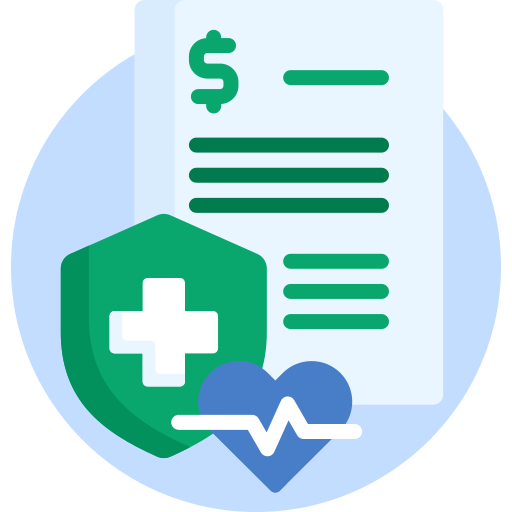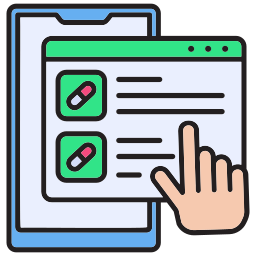Electronic Health Records (EHRs) are significant because of their important role in modernizing healthcare delivery through seamless integration with AI. The future of AI in Healthcare is here.
The global market for electronic health records is estimated to reach USD 43.62 billion by 2032, up from USD 27.74 billion in 2021.
EHRs digitize patient health information and are a foundation for advanced AI applications. AI in EHR systems has transformed healthcare by enhancing efficiency and accuracy across various functions.
AI in the EHR automates routine tasks, reduces physician burnout, improves patient-physician communication, and enhances clinical efficiency in healthcare organizations.
Machine learning and Natural Language Processing (NLP) algorithms streamline documentation processes, enabling healthcare providers to capture and analyze vast amounts of patient data quickly and accurately. Such tools enhance clinical decision-making, optimize resource allocation, and provide predictive analytics for tailored patient care.
EHR systems that use AI can transform healthcare delivery, making it more patient-centric, data-driven, and efficient, paving the path for the future of AI in healthcare and improving overall healthcare outcomes.
Evolution of Electronic Health Records (EHRs)
The evolution of EHRs marks a crucial shift from traditional paper-based records to digital systems, significantly enhancing healthcare efficiency and patient care. This transition is important as it allows for centralized storage of patient information that is accessible anytime and anywhere.
Digital EHRs streamline data retrieval, improve accuracy through standardized formats, and enable seamless sharing among healthcare providers.
They support advanced AI integration, leveraging technologies like machine learning and Natural Language Processing (NLP) to automate tasks, analyze data for predictive insights, and enhance clinical decision-making.
This evolution improves healthcare delivery and lays the groundwork for the future of AI in healthcare, promising enhanced efficiency, precision, and patient outcomes.
Understanding AI in EHR
Understanding AI in Electronic Health Records (EHR) involves applying Artificial Intelligence (AI) technologies to digital healthcare systems.
AI in EHR refers to integrating machine learning algorithms and NLP to automate tasks traditionally performed by healthcare professionals.
It encompasses data entry, documentation, decision support, and predictive analytics. AI enhances the EHR by improving data accuracy, facilitating personalized patient care through pattern recognition, and optimizing workflows.
By continuously learning from data inputs and user interactions, AI in EHR aims to improve patient outcomes and healthcare delivery in the dynamic digital healthcare ecosystem. It also works to expedite operations and reduce administrative expenses.
Applications of AI in EHR
AI in EHR systems achieves better patient outcomes and operational efficiency through expanded clinical decision support, workflow automation to expedite administrative processes, predictive analytics for early risk identification, and natural language processing for enhanced data interpretation.

Clinical Decision Support Systems (CDS)
Healthcare practitioners may make well-informed judgments regarding diagnosis and treatment plans with the help of AI-powered CDS systems that evaluate patient data. CDS improves clinical accuracy and patient outcomes by integrating patient data with evidence-based recommendations and medical knowledge resources.
Predictive Analytics and Risk Stratification
AI allows predictive analytics by evaluating massive amounts of information inside EHRs to find trends and forecast patient outcomes. This capacity may identify high-risk patients early on, enabling preventive measures and individualized treatment plans to reduce risks and enhance patient outcomes.
Natural Language Processing (NLP)
EHRs' physician notes, patient narratives, and other textual sources contain unstructured clinical data that NLP technology can extract and evaluate. It improves data accuracy and streamlines clinical workflow by enabling automated data input, better clinical documentation, and semantic comprehension.
Workflow Automation and Efficiency
AI-driven automation makes administrative work, including billing, scheduling appointments, and data input into EHR systems, easier. By automating routine tasks, AI decreases the burden on healthcare providers, minimizes mistakes, and maximizes operational efficiency, freeing up doctors to concentrate more on patient care.
Related read - AI in the Doctor's Office: How Artificial Intelligence is Transforming Healthcare Delivery
Future Possibilities and Innovations
The future of AI in healthcare, especially AI in EHR, promises significant advancements, driving efficiency and improving patient outcomes.

Blockchain Integration for Secure Health Data Sharing
Integrating blockchain with EHR technology ensures secure, transparent, and tamper-proof health data sharing. Blockchain’s decentralized ledger system allows for patient data access and sharing among healthcare providers, reducing the risk of data breaches and unauthorized access. This integration enhances patient trust by ensuring data privacy and security while enabling seamless interoperability between different healthcare systems, ultimately leading to better-coordinated care and improved patient outcomes.
AI-Driven Predictive EHR Systems
AI-driven predictive EHR systems analyze patient data to forecast health trends and outcomes. These systems use machine learning algorithms to identify patterns and predict potential health risks, enabling proactive interventions and personalized care plans. By anticipating complications and recommending preventive measures, AI-driven predictive EHRs improve patient care, reduce hospital readmissions, and optimize resource utilization, paving the way for a more efficient and effective healthcare system.
Interoperability Across Platforms
Continued improvements in interoperability standards, such as FHIR, will enable EHR systems to communicate more effectively across different platforms and healthcare systems. Healthcare solutions like HealthConnect CoPilot will facilitate the seamless exchange of patient information, reduce data silos, and improve coordination among various healthcare providers.
Enhanced Patient Engagement Tools
Future EHR systems will likely feature advanced patient engagement tools, such as integrated patient portals and mobile applications. These tools will allow patients to access their health information, schedule appointments, communicate with healthcare providers, and participate more actively in their own care.
Real-time Health Monitoring Integration
The integration of real-time health monitoring devices with EHR systems will enable continuous tracking of patient health metrics. Wearables and remote monitoring tools will transmit data directly to EHRs, allowing for timely intervention and better management of chronic conditions.
How HealthConnect CoPilot Can Help You with EHR Integration?
AI in EHR is shaping the future of healthcare by enhancing efficiency, accuracy, and patient outcomes. HealthConnect CoPilot is pioneering the future of AI in healthcare by integrating advanced AI technologies into Electronic Health Records (EHR). Our approach to AI in EHR focuses on enhancing data accuracy, improving clinical workflows, and enabling predictive analytics.
By leveraging machine learning and natural language processing, we streamline administrative tasks, automate clinical documentation, and provide actionable insights for healthcare providers.
This interface guarantees safe and easy data transmission by enhancing patient outcomes and operational efficiency. AI-powered EHR solutions by Mindbowser are intended to adapt and grow to meet the changing demands of the healthcare business.
- How can AI improve the management of Electronic Health Records (EHRs)?
AI can significantly enhance EHR management by automating routine tasks, such as data entry and coding, which reduces administrative burdens and errors. Advanced algorithms can analyze patient data to identify patterns, predict outcomes, and suggest personalized treatment plans. It leads to more accurate and efficient patient care, helping healthcare providers focus more on clinical tasks rather than administrative ones.
- What role does AI play in enhancing patient outcomes through EHRs?
AI improves patient outcomes by providing clinicians with actionable insights derived from large datasets. It can predict potential health issues before they become critical, recommend evidence-based interventions, and monitor patient progress in real-time. This proactive approach enables timely and precise medical interventions, improving overall patient health and reducing the likelihood of complications.
- How does AI in EHRs contribute to research and population health management?
AI enables the analysis of vast amounts of health data across populations, identifying trends and correlations that might not be evident through manual analysis. This capability supports research by uncovering new insights into disease patterns, treatment efficacy, and health outcomes.

Pravin Uttarwar, CTO of Mindbowser
As the CTO of Mindbowser, a healthcare-focused software development company, I am dedicated to delivering cutting-edge digital solutions that transform patient care and operational efficiency. With over 16 years of experience and as an MIT alumnus, I specialize in healthcare interoperability, FHIR-compliant systems, and AI-powered platforms, crafting scalable products and architectures tailored to the unique needs of healthcare providers and enterprises.
I have spearheaded the development of over 100 products and platforms, guiding them from concept to full-fledged solutions. My expertise extends to scaling remote tech teams, driving EHR integrations, and building secure, cloud-native healthcare solutions. By shaping technology visions and roadmaps, I help clients achieve long-term growth and success in the rapidly evolving healthcare landscape.
HealthConnect CoPilot enabled us to access real-time patient health data through integration with Apple HealthKit, enhancing care delivery while maintaining HIPAA compliance. This led to personalized care and improved outcomes for patients.

AI-enhanced Obstetrics Clinical Decision Support Platform
HealthConnect CoPilot's integration with Epic's Hyperspace has transformed our workflow. Automated post-delivery examinations and HL7 protocol use ensure accurate updates to Epic. Their expertise empowers informed decision-making in childbirth

Top Provider for Customized Healthcare Solutions
HealthConnect CoPilot's helped us to integrate with leading tracking devices such as Apple Watches and Fitbit. This integration enables effortless syncing of health data, providing users with real-time insights displayed directly on our flagship products: smart mirrors and digital calendars.

A Provider of Customizable Display Solutions
Post a comment Cancel reply
Related Posts
Ambulatory EHR vs Inpatient EHR: Which One is Right for Your Practice?
EHRs help doctors and healthcare staff store, access, and manage patient information digitally. They improve…
Ambulatory EHR: A Complete Guide for Healthcare Providers
Healthcare providers are moving beyond paper records and legacy systems, and ambulatory EHRs are leading…
Epic Integration with SMART on FHIR: A Complete Guide
The challenge of integrating AI-driven tools and third-party applications with Epic’s EHR system has long…
Epic EHR Integration – Unlocking Seamless Healthcare Connectivity
The EHR integration has revolutionized healthcare by enabling secure, real-time access to patient data. Epic…
Epic FHIR Integration: Making Interoperability Seamless for Healthcare Providers
Healthcare systems generate massive amounts of patient data daily, but without Epic FHIR integration, this…
Epic EHR Explained: How It Transforms Healthcare Operations and Patient Care
Epic EHR has become a cornerstone of modern healthcare, providing hospitals and clinics with a…










